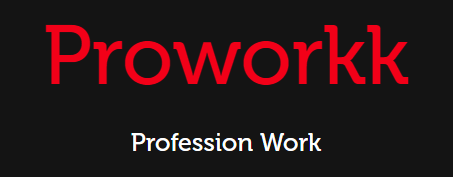Profession: Data Engineer
Experience: 8 years
Location: San Francisco, USA
My Personal Experience:
My journey as a data engineer started unexpectedly, much like a happy coincidence. After completing my education in computer science, I found myself drawn to the world of data and technology. My internship at a renowned data-driven company opened my eyes to the possibilities and potential of data engineering.
Over the years, I have honed my skills and gained experience building data pipelines, optimizing data workflows, and implementing data governance practices. The thrill of transforming raw data into valuable insights keeps me motivated.
The world of data engineering is akin to a puzzle that needs to be solved with creativity and precision. It’s a profession that requires dedication, curiosity and an appetite for learning. Looking back at my journey, I take pride in my work’s impact on businesses and individuals.
The Hard part I feel about this profession as per my experience till now:
Being a data engineer is rewarding and challenging, but I find certain aspects of the job particularly demanding. One of the main challenges is dealing with the ever-evolving technology landscape. In the fast-paced world of data engineering, new tools, frameworks, and languages emerge frequently. Staying updated with the latest trends and ensuring I can leverage the most efficient technologies can be quite demanding.
Another difficulty I encounter is the vast amount of data that needs to be managed and processed. In today’s data-driven era, organizations collect and analyze massive datasets, and it’s the data engineer’s responsibility to ensure the smooth flow and integration of this data. Handling such large volumes requires a robust infrastructure, and often, scaling systems to cope with the load becomes a complex task.
Moreover, as a data engineer, I sometimes find myself in situations where I need to bridge the gap between different teams and departments. Effective communication and collaboration are crucial for successful data engineering projects. Explaining technical concepts to non-technical stakeholders or understanding the specific requirements of different teams can be a challenging but essential part of the job.
Things I find interesting or feel “happy” about this profession are:
Despite the challenges, being a data engineer has its fair share of exciting and fulfilling moments. One of the most fascinating aspects of this profession is witnessing how data-driven insights can drive business decisions. Turning raw data into valuable information that can influence strategic choices and lead to growth is incredibly satisfying.
Data engineering also allows me to work with cutting-edge technologies, including artificial intelligence and data science engineering. Integrating machine learning models into data pipelines or creating systems that power advanced analytics is like being at the forefront of innovation.
Moreover, I get immense pleasure from solving complex problems. Designing efficient data architectures, optimizing data pipelines, and ensuring data quality are intellectually stimulating tasks that keep me engaged and motivated.
Pros And Cons I feel about this profession:
Pros:
- Continuous Learning: Working in data engineering means being exposed to various technologies and domains. This constant learning process keeps me engaged and hones my skills.
- Impactful Work: Data engineering enables data-driven decision-making, significantly impacting an organization’s success.
- In-Demand Skills: The demand for skilled data engineers is rising, making it a promising career path with excellent job prospects.
Cons:
- Time-Consuming Debugging: Identifying and fixing issues in data pipelines can be time-consuming, especially when dealing with large datasets and complex architectures.
- Uncertain Data Quality: Ensuring data quality is a perpetual challenge. Inconsistent or inaccurate data can lead to faulty analyses and unreliable insights.
- Balancing Priorities: Data engineers often face competing priorities, such as meeting deadlines, maintaining data accuracy, and addressing urgent issues.
My suggestions for newcomers in this profession:
To those starting their journey as data engineers, I have some valuable advice based on my experience:
- Build Strong Fundamentals: Master the fundamentals of data engineering, including data modelling, database systems, and data integration techniques.
- Embrace Continuous Learning: Stay up-to-date with the latest advancements in data engineering, as technology is constantly evolving.
- Seek Collaboration: Foster effective communication and collaboration with other teams to understand their requirements better and deliver impactful solutions.
- Focus on Data Quality: Prioritize data quality and implement validation and cleansing processes to ensure reliable insights.
- Problem-Solving Attitude: Develop a problem-solving mindset, as data engineering often involves overcoming complex challenges.
In conclusion, my journey as a data engineer has been remarkable. Over the past 8 years, I have seen the field evolve and transform, and I feel a deep sense of satisfaction in contributing to data-driven initiatives. While the profession comes with its share of challenges, the opportunities for growth, impact, and innovation make it an advantageous career choice. For aspiring data engineers, I encourage you to embrace the continuous learning journey and relish the thrill of turning data into actionable intelligence.
